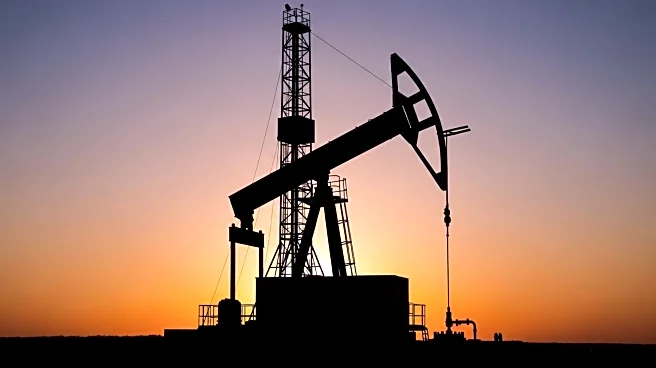What is the story about?
What's Happening?
Argentina's energy chief, Daniel Gonzalez, has stated that the country's Vaca Muerta shale oil and gas infrastructure plans can endure short-term political risks. Despite recent electoral setbacks for President Javier Milei's market-oriented reforms, Gonzalez emphasized that long-term projects, such as pipeline construction, remain unaffected by provincial election outcomes. The reforms have facilitated access to global credit for shale producers, enabling significant project-finance deals. Chevron Corp.'s country manager in Argentina, Ana Simonato, highlighted the necessity for future governments to uphold free-market policies to sustain investor confidence.
Why It's Important?
The resilience of Argentina's Vaca Muerta shale projects is crucial for the country's energy sector and economic stability. Maintaining investor confidence amid political fluctuations ensures continued development of vital infrastructure, which is essential for Argentina's energy independence and export capabilities. The ability to withstand political changes may attract further foreign investment, bolstering the economy and creating jobs. However, the political landscape remains a critical factor, as shifts could impact policy continuity and investor sentiment.
What's Next?
Future developments in Argentina's political scene could influence the trajectory of energy projects. Stakeholders will likely monitor upcoming elections and policy announcements closely. Continued advocacy for free-market policies by industry leaders may play a role in shaping government strategies. Additionally, the completion of major infrastructure projects, such as pipelines and LNG terminals, will be pivotal in determining the long-term success of the Vaca Muerta shale region.

















